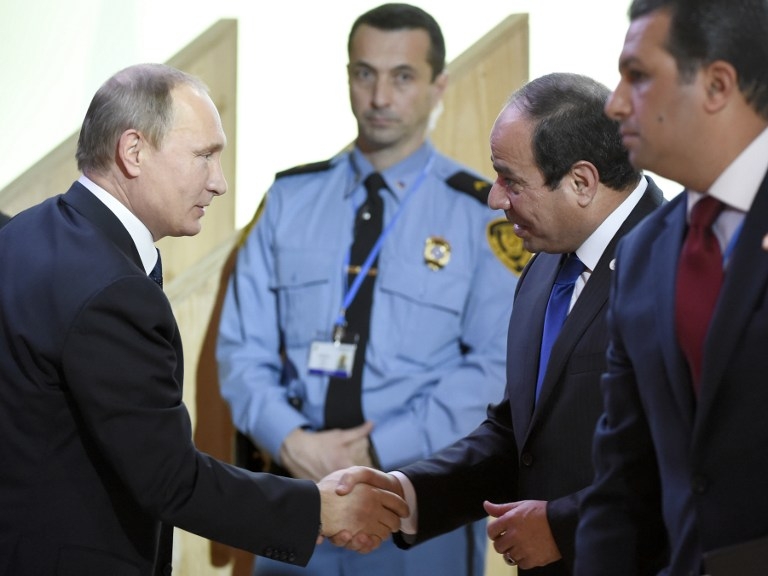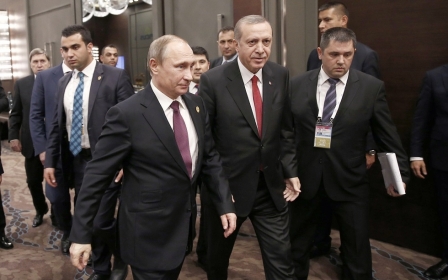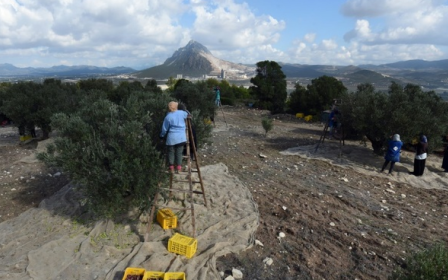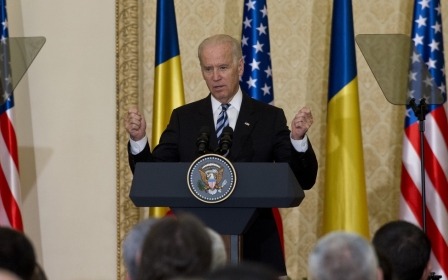Sisi calls for $100bn to fund African carbon curbs at Paris summit

Egypt's President Abdel-Fattah el-Sisi called on international support for African countries to combat the effects of climate change at the World Climate Change Conference.
"All African nations are contributing less to the total harmful emissions and are the most affected by climate change," Sisi told global leaders gathering Monday for a United Nations climate summit in Paris.
"Africa demands an international, just, and clear agreement that considers disparity of burdens between developed and developing countries," Sisi said.
He called for "bolstering the ability of developing countries to cope with climate change," while calling for $100 billion of funding annually by 2020 to developing countries to fend off the phenomenon.
Heading a UN climate change committee of African leaders, Sisi cited a UN environmental report estimating the financial gap in funding to Africa at $12 billion a year by 2020 - a gap that is expected to widen, reported Egyptian al-Ahram Online newspaper.
The heads of more than 150 nations gathered in the northern outskirts of Paris in a bid to inject political momentum into what many described as the last chance to avert climate calamity.
"Never have the stakes of an international meeting been so high, because it concerns the future of the planet, the future of life," French President Francois Hollande said in an opening speech.
"The hope of all of humanity rests on all of your shoulders."
Deep divisions
But a day after Sisi's comments, a slew of divisive issues are becoming more difficult to gloss over.
US President Barack Obama, China's Xi Jinping and many other leaders vowed their nations would strive to limit heat-trapping "greenhouse" gases that stoke global warming.
The result would be a post-2020 pact that would save Earth's climate system for generations to come, they promised.
"The future is one that we have the power to change, right here, right now," said Obama.
But similar lofty promises have come crashing down during more than two decades of UN negotiations.
Obama will also meet with leaders of low-lying island nations to highlight his commitment to help the most climate-vulnerable.
The UN climate process concerns the use of fossil fuels, the backbone of the world's energy supply - and that means huge interests are at stake.
For years, the annual parlay has been hobbled by finger-pointing and nit-picking, riven especially by arguments between rich and poor nations over who should bear most of the carbon-curbing burden.
Those divisions were quickly exposed on Monday, as leaders of developing nations hit out at rich countries for perceived hypocrisy in making demands to use fewer fossil fuels after carbon-burning their way to prosperity.
"The prosperous still have a strong carbon footprint and the world's billions at the bottom of the development ladder are seeking space to grow," Indian Prime Minister Narendra Modi said.
Dangerous labyrinth
With the debates echoing in their ears and the leaders heading home, lower-level negotiators in the 195-member UN forum have been tasked with creating such a pact by December 11.
They need to start on Tuesday morning slimming down a 54-page draft text that is a labyrinth of opposing positions.
French Foreign Minister Laurent Fabius has told diplomats they have until just Saturday to iron out as many differences as they can, before ministers take over to try to resolve the most intractable of political disputes.
Points of contention include agreeing on a systematic review of emissions-curbing pledges and ramping up climate funding for poor countries so that it reaches a promised $100 billion (95 billion euros) a year by 2020, and the legal status of the accord itself.
Poorer countries are also pushing hard for rich nations to transfer clean technology to help them avoid taking the path of carbon pollution.
Many powerful nations are comfortable with aiming to limit global warming to two degrees Celsius from pre-Industrial Revolution levels, even though this goal is a long way from being achieved.
But dozens of the most vulnerable nations - small island states and poor countries in Africa - are sticking by an optional target of 1.5C, arguing that otherwise their combined populations of more than one billion people would be in peril.
Still, there is optimism that a deal can be finally be reached, as nations have already gone further in the UN process this time than ever before.
Nearly all the nations involved have submitted voluntary carbon-curbing pledges, accounting for 95 percent of greenhouse gases currently being emitted.
This still puts Earth on track for warming of 2.7 to 3.5 degrees Celsius, according to UN climate chief Christiana Figueres.
But she says this creates the architecture for more ambitious plans in the years ahead that could keep global warming below the 2C threshold.
New MEE newsletter: Jerusalem Dispatch
Sign up to get the latest insights and analysis on Israel-Palestine, alongside Turkey Unpacked and other MEE newsletters
Middle East Eye delivers independent and unrivalled coverage and analysis of the Middle East, North Africa and beyond. To learn more about republishing this content and the associated fees, please fill out this form. More about MEE can be found here.




